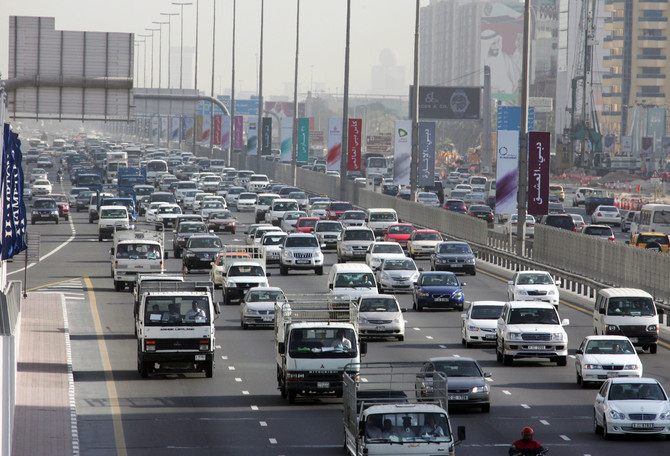DUBAI: Motorists say traffic conditions are worsening in the UAE, according to a recent poll, local daily Gulf News reported.
An independent report named “Road Safety Monitor” revealed that 40 percent of UAE motorists believed driving conditions had become more dangerous in the UAE despite a decrease in road fatalities.
The survey, which involved 1,016 UAE residents, found that 57 percent of motorists said they believed they had seen an increase in speeding.
“It seems that we cannot take the foot off the pedal in terms of further educating UAE motorists about safe driving. On the one hand we enjoy further improved traffic infrastructure which leads to greater driving enjoyment, but on the other hand UAE motorists must realize their increasing misbehavior and we must improve our driving manners,” survey commissioner Road Safety UAE’s Thomas Edelman said.
A perceived increase in other motoring misconducts such as drivers using mobile phones, lane swerving, and distracted driving were also highlighted by the respondents, according to the YouGov survey.
One of the commissioners of the study concluded that this negative perception is linked to the main causes of road crashes in the UAE, and that a “strong correlation between the research findings and the recorded number of accidents and fatalities.”
Meanwhile a separate report in Oman revealed that 25 percent of drivers fell asleep behind the wheel while driving.
Sultan Qaboos University (SQU) asked 492 non-commercial Omani motorists about their sleeping and driving habits, and more than a quarter of them admitted they had fallen asleep while driving.
The study, “Daytime Sleepiness Among Young Adult Omani Drivers,” reported that 124 respondents had experienced daytime sleepiness, and had slept behind the wheel at least once a month, majority of whom were men.
The research suggested that a shorter sleep duration is linked to daytime sleepiness, which was confirmed by a psychotherapist.


























